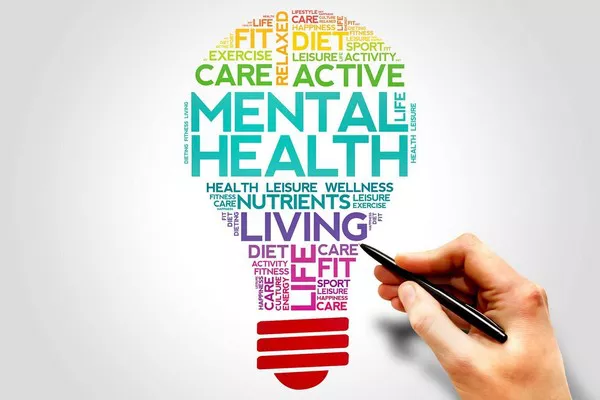Psychosocial rehabilitation (PSR) is a multidimensional approach to mental health care focused on promoting recovery, resilience, and community integration for individuals living with severe mental illnesses. Rooted in the principles of empowerment, self-determination, and holistic support, PSR programs aim to enhance the quality of life and functional outcomes of individuals affected by psychiatric disorders. In this comprehensive guide, we delve into the core concepts, methodologies, and benefits of psychosocial rehabilitation, highlighting its significance in the context of mental health recovery and societal inclusion.
Understanding Psychosocial Rehabilitation
Definition and Scope:
Psychosocial rehabilitation encompasses a range of evidence-based interventions and supports designed to address the complex needs of individuals with mental health challenges. Unlike traditional medical models that focus solely on symptom management, PSR adopts a person-centered approach that emphasizes recovery-oriented goals, skill development, and community participation. By addressing psychological, social, and environmental factors, PSR programs seek to empower individuals to lead fulfilling lives and achieve their fullest potential.
Principles of Psychosocial Rehabilitation:
At the heart of psychosocial rehabilitation are several guiding principles that shape its philosophy and practice:
Recovery and Resilience: PSR emphasizes the inherent capacity for recovery and resilience within each individual, recognizing their strengths, resources, and aspirations.
Person-Centered Care: PSR promotes collaboration and shared decision-making between service providers and service users, honoring the individual’s preferences, values, and goals.
Holistic Approach: PSR adopts a holistic view of mental health and well-being, addressing not only symptoms but also social, occupational, and relational domains.
Community Integration: PSR emphasizes the importance of community inclusion and participation, fostering meaningful connections and reducing stigma and discrimination.
Skill Building and Empowerment: PSR programs focus on enhancing individuals’ coping skills, problem-solving abilities, and self-efficacy, empowering them to navigate life’s challenges effectively.
Core Components of Psychosocial Rehabilitation Programs
Psychoeducation and Illness Management:
Psychoeducation is a fundamental component of PSR programs, providing individuals with knowledge and understanding of their mental health condition, treatment options, and coping strategies. By enhancing illness awareness and self-management skills, psychoeducation empowers individuals to actively participate in their recovery journey and make informed decisions about their care.
Skills Training and Development:
Skills training interventions are integral to PSR, offering individuals practical tools and strategies to enhance their daily functioning and independence. These may include social skills training, vocational rehabilitation, cognitive remediation, and problem-solving skills training. By acquiring new skills and competencies, individuals can improve their ability to navigate social interactions, manage stress, and pursue meaningful employment and educational opportunities.
Supportive Counseling and Psychotherapy:
Counseling and psychotherapy play a crucial role in addressing the emotional and interpersonal challenges associated with mental illness. Psychosocial rehabilitation programs offer various therapeutic modalities, including individual counseling, group therapy, family counseling, and peer support services. These interventions provide a safe and supportive environment for individuals to explore their feelings, develop coping strategies, and build resilience.
Case Management and Care Coordination:
Case management services are essential for coordinating care and facilitating access to resources and support services. Case managers work closely with individuals to develop personalized treatment plans, connect them with community-based services, and advocate for their needs within the healthcare system. By providing ongoing guidance and support, case managers help individuals navigate complex systems and achieve their recovery goals.
Benefits and Outcomes of Psychosocial Rehabilitation
Improved Quality of Life:
One of the primary goals of psychosocial rehabilitation is to enhance the overall quality of life of individuals living with mental illness. By addressing social isolation, promoting community engagement, and fostering personal growth, PSR programs empower individuals to lead meaningful and fulfilling lives despite their psychiatric challenges.
Enhanced Functional Outcomes:
Psychosocial rehabilitation interventions are associated with improvements in various functional domains, including social functioning, vocational stability, and independent living skills. By providing individuals with the tools and support they need to succeed in their daily lives, PSR programs facilitate greater autonomy and self-sufficiency.
Reduced Hospitalizations and Relapses:
Research has shown that participation in psychosocial rehabilitation programs is associated with reduced rates of psychiatric hospitalizations and relapses. By promoting early intervention, crisis management, and relapse prevention strategies, PSR helps individuals maintain stability and prevent exacerbations of their mental health symptoms.
Empowerment and Self-Efficacy:
Psychosocial rehabilitation fosters a sense of empowerment and self-efficacy among individuals, enabling them to take an active role in their recovery journey. By building on their strengths, fostering resilience, and promoting self-determination, PSR programs empower individuals to overcome challenges and achieve their goals.
See Also: Why Is There A Stigma On Mental Health?
Conclusion:
Psychosocial rehabilitation is a vital component of comprehensive mental health care, offering individuals with severe mental illnesses the support, skills, and resources they need to thrive in their communities. By embracing the principles of recovery, empowerment, and community integration, PSR programs empower individuals to reclaim their lives, pursue their aspirations, and realize their fullest potential. As mental health systems continue to evolve, the integration of psychosocial rehabilitation into standard practice is essential for promoting recovery-oriented care and fostering inclusive, supportive communities for all.


